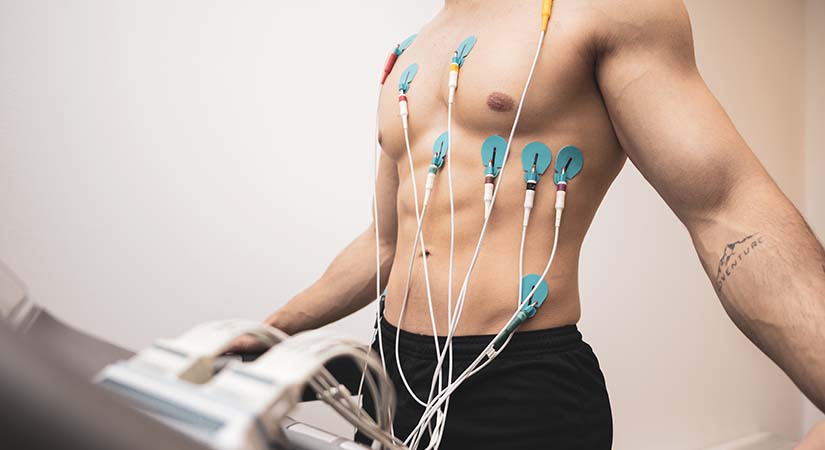
Cardiac Exercise Stress Test
Stress tests check how well your heart pumps blood by incorporating exercise. During the test, Dr Sigauke will ask you to walk or run on a treadmill or ride a bicycle while your heart rate and blood pressure are monitored.
Physical exercise causes our bodies to pump blood harder and faster, which provides a good indication of how well your heart is functioning.
What is the purpose of an exercise stress test?
Exercise stress tests form part of a comprehensive cardiology consultation and are used for 3 main reasons:
- To manage the treatment of a pre-existing heart condition
- To check the functioning and capability of your heart before surgery
- To diagnose coronary artery disease, where a build-up of cholesterol and other fluids have started to cause damage to the arteries
- To diagnose arrhythmias causing heart rate issues
What to expect during an exercise stress test
Dr Sigauke will advise you not to eat or drink anything before your consultation so as not to interfere with the results. You should also wear comfortable clothing for moderate exercise.
Before completing the stress test, Dr Sigauke will ask you questions about your medical history and physical fitness. This will help him determine the level of intensity to set the test. He will then place electrode patches onto your chest, arms and legs. If you have hair on these areas, Dr Sigauke will shave them first to avoid the patches sticking to the hair.
Dr Sigauke will request that you either walk on a treadmill or cycle on a stationary bike. The test will be slow at first and then increase in intensity while monitoring your heart rate and blood pressure. You will continue the test until you start to present with symptoms that indicate you are unable to continue, such as shortness of breath, chest pain and hypertension.
Once you have stopped exercising, Dr SIgauke will ask you to stand still for some time and then lie on the patient's bed so that he can continue monitoring your progress as your heart rhythm and breathing return to normal.
Results of an exercise stress test
Depending on your symptoms and condition, Dr Sigauke may recommend more testing to determine any other underlying causes. Alternatively, he may prescribe medication and develop a comprehensive treatment plan if you are found to have symptoms of coronary heart disease or arrhythmias.

